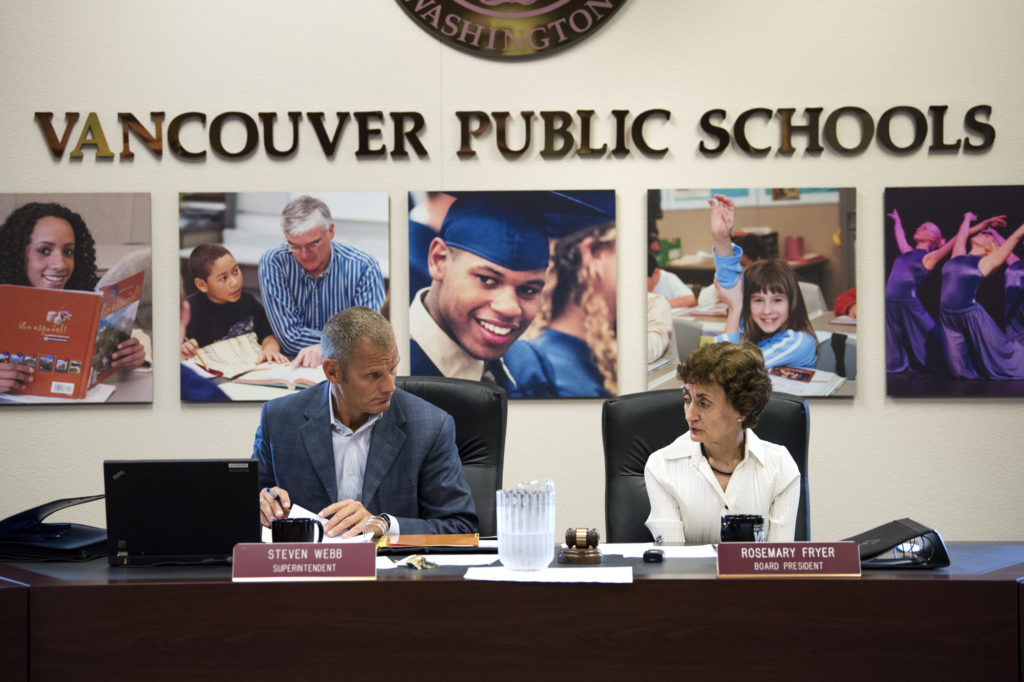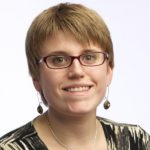A few things are certain about the Vancouver Education Association’s contract with the Vancouver school district.
Teachers received raises. School ends early on Mondays. And teachers can receive pay for some additional work days.
But that’s about it.
A week after teachers ratified the contract by a vote of 92.4 percent, details about other adjustments remain fuzzy. The final contract, which the Vancouver Public Schools board ratified unanimously Tuesday night, is not yet available to the public. It likely won’t be for a couple weeks. The school board posted only bullet points of changes, and teachers in the union’s general membership meeting last week were handed a summary list of what sections of the contract would be affected.
Days later, the impact of those changes — and how they will affect other staff members in the district — is becoming apparent.
Special education teachers, who declined to speak publicly to The Columbian for fear it might hurt their jobs, have expressed frustration and even anger in recent days. They say they are losing special education paraeducators in their classrooms due to changes to the way those staff members are allocated under the union’s contract. Paraeducators provide key services in special education classrooms, helping maintain student safety and health.
It’s difficult to say how paraeducator allotment has changed without the specific contract language. But according to Rick Wilson, executive director of the Vancouver Education Association, the most significant changes are to “structured communications classes,” a type of special education classroom mostly serving students who need social skills and communication support.
Under the union’s 2016 to 2018 contract, Social Communication Center classrooms have had a maximum of 18 students in them with a teacher and two paraeducators for every seven to nine students, district spokeswoman Pat Nuzzo said. If a student in the classroom needed what’s called a 1:1 paraeducator — a paraeducator assigned specifically to support that individual child — one of those paraeducators would step into that role.
But Wilson said he was contacted by the Vancouver Association of Educational Support Professionals, the union that represents paraeducators, and was told the Vancouver Education Association didn’t have the right to negotiate that issue in the first place.
“We were basically threatened with legal action if we didn’t change that,” Wilson said. “We were told it wasn’t appropriate for us to bargain that. We agreed.”
As a result, Wilson explained, they set paraeducator assignments back to pre-2016 levels: 16 students, one teacher and two program paraeducators for up to nine students. If a child needs a 1:1 paraeducator, another paraeducator would be added to that classroom.
Representatives from the Vancouver Association of Educational Support Professionals did not return multiple requests for comment for this story.
Nuzzo said no paraeducators have lost their job as a result, but teachers and paraeducators on the ground say they’re losing bodies in the classroom. Several paraeducators attended Tuesday’s board meeting, including Linda Freeland, who works at Columbia River High School.
Freeland is a paraeducator in a class with 26 children with developmental disabilities. That class has two teachers and last year had six paraeducators. This year, that number has been cut down to four while the other paraeducators have been “excessed” and reassigned, she said.
“We’re members of a working team,” Freeland told the board. “We understand our students. We understand one another. When you break that team up, it’s not just that you’re separating two people. You’re affecting the whole interlocking relationship.”
Jesse Norris was another paraeducator at Columbia River High School with Freeland. On Thursday, he was informed by the district he was being “excessed,” he said.
The news, Norris said, was “out of the blue,” and in the meantime, he is not working in the district.
“I’m just kind of hanging out,” he said.
Norris worked with students with autism, helping them to develop job skills and driving them to work sites.
“I get to connect with the kids,” he said.
Freeland said that means children in that program will likely go without that service.
“It’s gone,” she said.




